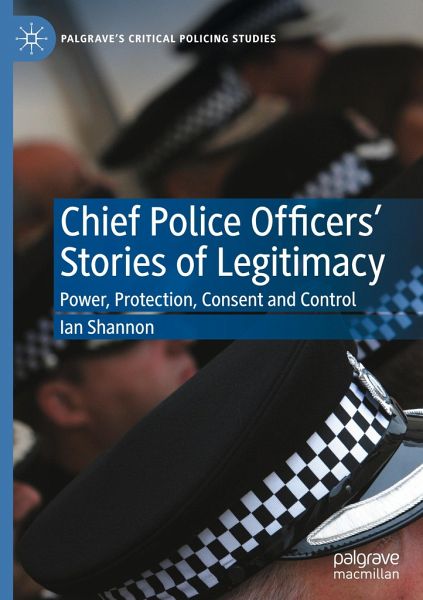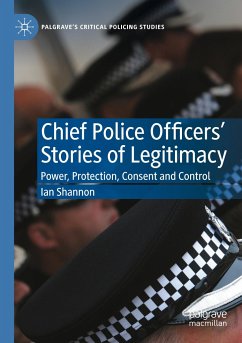
Chief Police Officers' Stories of Legitimacy
Power, Protection, Consent and Control
Versandkostenfrei!
Versandfertig in 6-10 Tagen
42,99 €
inkl. MwSt.
Weitere Ausgaben:

PAYBACK Punkte
21 °P sammeln!
This book adds to knowledge about chief police officers in England and Wales by exploring their understandings of the right of police to exercise power. Their beliefs, motivations, backgrounds, and cultures are examined. Light is cast on how they perceive power, coercion, control, policing purpose, gendered understandings, protecting people, vulnerability, policing by consent, discretion, operational independence, law and the oversight and political direction (or governance), and accountability of police. Chief officers used three legitimating narratives based on: protecting people - particula...
This book adds to knowledge about chief police officers in England and Wales by exploring their understandings of the right of police to exercise power. Their beliefs, motivations, backgrounds, and cultures are examined. Light is cast on how they perceive power, coercion, control, policing purpose, gendered understandings, protecting people, vulnerability, policing by consent, discretion, operational independence, law and the oversight and political direction (or governance), and accountability of police. Chief officers used three legitimating narratives based on: protecting people - particularly the most vulnerable - policing by consent, and law and the oversight and political direction of police. These accounts are assessed. Damaged processes of police governance that risk undermining police leadership and legitimacy are revealed. Critically, chief officers' understandings of legitimacy are found to be confused, conflicted, and, above all, convenient in supporting them in asserting a privileged position from which they can pursue their preferences for the use of power.












